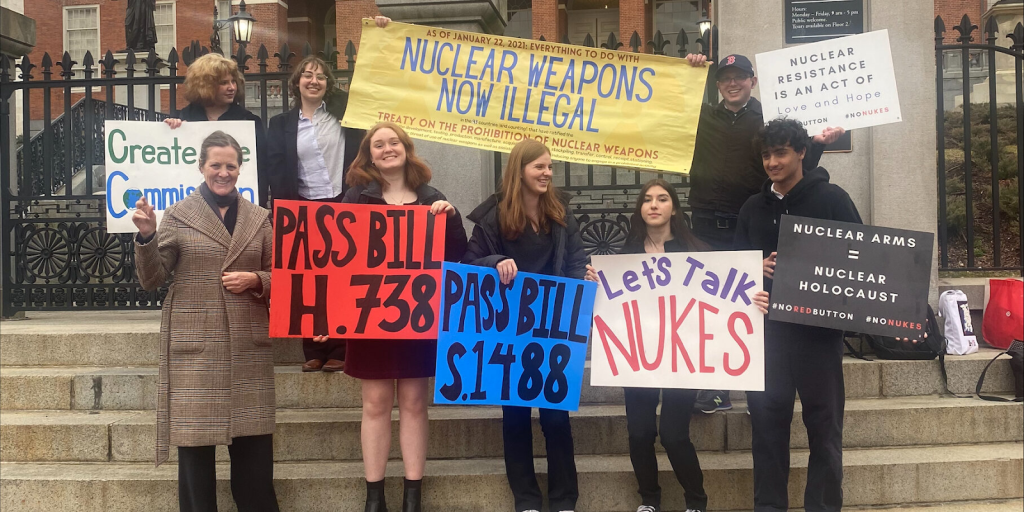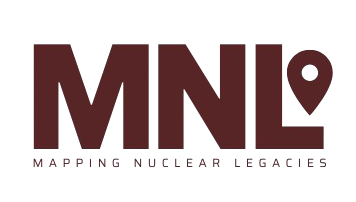Despite continuous lobbying efforts by students and key nuclear disarmament activist groups, the Massachusetts State Congress has yet to pass joint bills H.738 and S.1488, which would create a citizen-led commission focused on transitioning Massachusetts away from nuclear weapon production and development towards a nuclear weapon-free state.
The bills were first introduced in the 2019-2020 legislative session, where they failed to make it out of committee. The House bill was co-sponsored by Representative Lindsay N Sabadosa (1st Hampshire) and Senator Joanne M Comerford (Hampshire, Franklin, and Worcester), and the Senate bill was presented with a petition of Senator Comerford and Representative Sabadosa, and co-sponsored by Representative Sabadosa and Senator Jacob R. Oliveira (Hampden, Hampshire, Worcester).
The bill was reintroduced in the 2020-2021 legislative session. Prior to the House session, more than 300 campaigners advocated for the bills through phone calls, emails, Zoom meetings, and in-person lobbying with their state representatives. Additionally, a group of stalwart campaigners remained at the State House, attempting to speak directly with state representatives and their staff. The bills successfully made it out of committee, and at the conclusion of the session, the bills had gained the support of 23 out of 40 state senators and 46 out of 150 state representatives, with another 28 representatives stating they would “consider” supporting it. Despite the strong favor for these bills, House leadership denied putting them to a vote.
The following year, the bill once again re-entered the legislative session. On February 16, 2023, the House referred H.738 to the Committee on Emergency Preparedness and Management, with the concurrence of the Senate. Following this referral, on March 6, 2023, students and activists with the Massachusetts Warheads to Windmills Coalition advocated for the creation of the commission. These students advocated for the bills by meeting with the Joint Committee on Emergency Preparedness and Management, impressing the members with their advocacy. Notably, the students met with Senator Jacob R Oliveira and persuaded him to co-sponsor H.738 and S.1488. Just nine days later, H.738 was reported favorably out of the Joint Committee on Emergency Preparedness. On March 27, 2023, the students addressed the Committee on Public Safety and Homeland Security, advocating for S.1488.
On April 8, 2024, H.738 was referred to the House Ways and Means Committee, and on May 16, 2024, S.1488 was referred to the Senate Ways and Means Committee. Almost a week later, on May 22, 2024, over 30 activists rallied at the Massachusetts State House for the Warheads to Windmills Coalition’s Day of Action and Nuclear Weapons and Climate. In addition to the coalition, organizations such as NuclearBan.US, Mass Peace Action, Brookline Students for Nuclear Disarmament, and Greater Boston Physicians for Social Responsibility rallied their supporters to advocate for bills stalled at the state level, including H.738 and S.1488. As part of their effort, advocates met with the 30 legislators with leadership positions in the House and Senate Ways and Means Committees, arguing that these are “no-brainer” bills that ought to be passed immediately.
Despite this persistent activism, both bills remain stalled in their respective Ways and Means Committees. The inaction has left advocacy groups confused, as similar bills creating nuclear disarmament commissions have passed in municipalities across the state. This stall reflects a broader pattern of bills favoring nuclear disarmament never advancing through the Massachusetts State Legislature. With no further action since 2024, the future of these bills is unclear. The lack of success at the state level may encourage activists to push for the formation of municipal-level commissions or to urge the governor to establish the commission directly. The passage of these bills would not only help Massachusetts move toward a nuclear-free state but would likely encourage other states to take action. However, the lack of action in passing these bills reflects a broader pattern of the struggle of civil society to make significant strides in moving their states away from nuclear weapon production. Hopefully, legislators will become more aware of the danger of nuclear weapons we currently face, and legislation like this joint resolution will become a reality.

